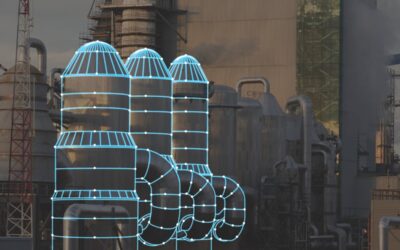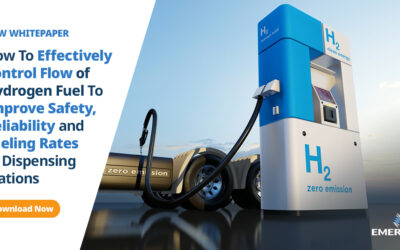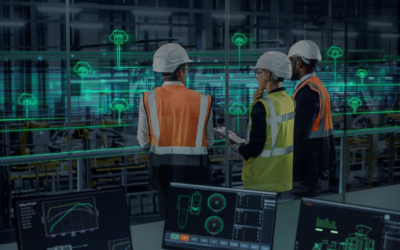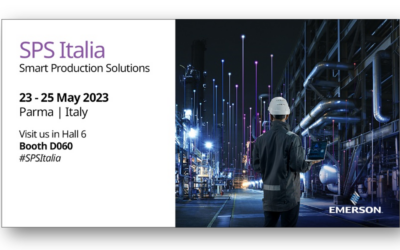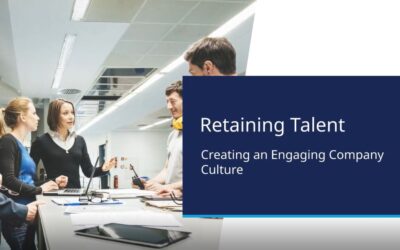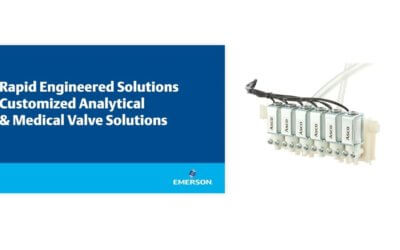Heavy-duty and commercial transport are notorious for their significant contribution to greenhouse gas emissions, particularly in the European Union, where they account for a staggering 27% of total road transport emissions. However, there’s a promising solution on the horizon that’s set to revolutionize this sector – hydrogen fuel cell technology.

Posts by or with Deidrea Niece
Emerson’s PACK EXPO Preview: Trends, Tech, and More!
As the packaging industry undergoes a profound transformation, businesses face both challenges and exciting opportunities.
How to Reduce Your Boiler’s Carbon Footprint With Sustainable Biofuels
The environmental risks associated with carbon emissions have escalated over the last several decades. Although modern technologies like burner and boiler systems have enhanced our standard of living, they’ve also created long-term negative consequences in the form of...
Accelerating Hydrogen Infrastructure: Key Insights in Our Whitepaper
Hydrogen-fueled vehicles are on the rise, necessitating the development of reliable and efficient hydrogen fueling stations. However, scaling up such infrastructure poses unique challenges that require innovative solutions. In our new white paper, “How to Effectively Control Flow of Hydrogen Fuel to Improve Safety, Reliability, and Fueling Rates at Dispensing Stations,” we delve into these challenges and explore potential solutions for scaling hydrogen fueling infrastructure.
Reduce Energy Consumption and Achieve Net Zero Goals with Multimedia Utilities Monitoring – Start Small and Scale Up
Driven by the need to both cut resource costs and minimize their environmental impact, companies across all industries are targeting net-zero strategies and sustainability goals. Monitoring utilities such as compressed air, water, electricity, steam and other gases...
Learn How to Meet Your Productivity and Sustainability Challenges – from the Plant Floor to the Cloud – at SPS Italia
If you’ll be at SPS Italia, May 23-25, add these important stops to your agenda! First, click here to receive your free pass to SPS Italia. Floor to Cloud How can you transform productivity, sustainability, and efficiency? These major industrial challenges are not...
At Hannover Messe Learn How Monitoring Utilities Can Help You Achieve Net Zero Goals
Will you be at Hannover Messe April 17 - 21? If so, don’t miss the thoughtful and useful presentation, “Saving Energy: How Monitoring Utilities Such As Compressed Air Helps You Achieve Net-Zero Goals” by Emerson’s Eugenio Silva, Product Manager, IIoT Applications, on...
The Advantages of Digitalization in Clean-in-Place Systems
Clean-in-place (CIP) systems are a vital part of daily production in the food and beverage industry. They allow manufacturers to clean internal piping, tanks, and machines from one batch to the next to meet government regulations and ensure product quality and safety. However, CIP operations also represent a significant portion of a facility’s total utility costs and often involve manual process adjustments and manual data recording.
Retaining Talent: Creating an Engaging Company Culture
By having a clear purpose and making sure that it aligns with their employees’ values, they can attract and retain top talent. It’s a challenge, but if companies can make it happen, they’ll be in a much better position to keep their employees happy and engaged.
What Is Emerson’s Rapid Engineered Solutions Program?
The Rapid Engineered Solutions program is designed to meet the demands of design engineers, helping to shorten development time and increase ROI. Don’t let a compressed timeline hold you back, let Emerson’s Rapid Engineered Solutions program help you achieve success in your next project.
Emerson Supports Scalability of Fuel Cell Systems
Hydrogen fuel cell electric vehicles (FCEVs) offer a clean, carbon-neutral alternative to traditional gasoline vehicles, and have the potential for exponential growth in the transportation sector. However, there are several challenges that need to be addressed in order to scale up production, including supply-chain issues and difficulties obtaining chassis and components. In order to meet the increasing demand for FCEVs, manufacturers need to quickly expand their factories and improve procurement efficiency.
Digital Transformation in the Manufacturing Industry
In recent years, there has been a lot of talk about digital transformation within the manufacturing industry. Many companies have been hesitant to invest in this type of transformation due to perceived cost and disruption concerns. However, it is recommended to focus on one problem at a time and then worry about scaling up. Doing so will help maintain sustainability goals and optimize energy costs.
Our Global Community
Emerson Exchange 365
The opinions expressed here are the personal opinions of the authors. Content published here is not read or approved by Emerson before it is posted and does not necessarily represent the views and opinions of Emerson.


